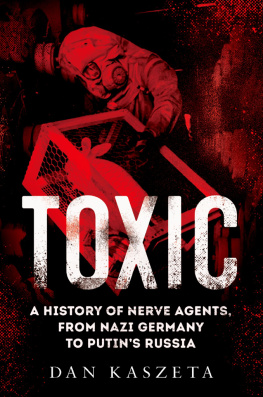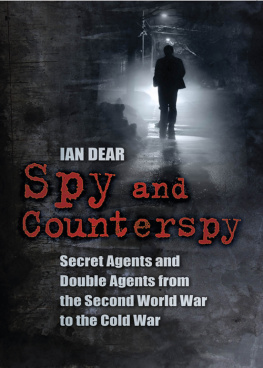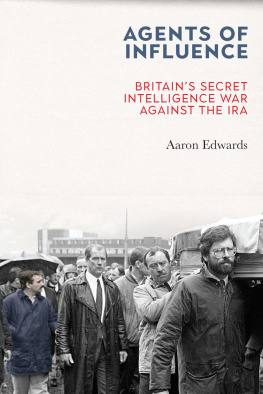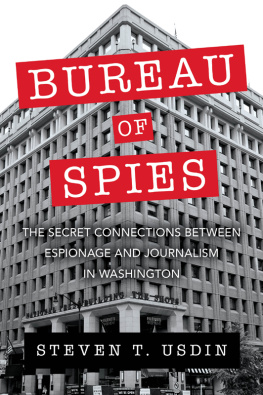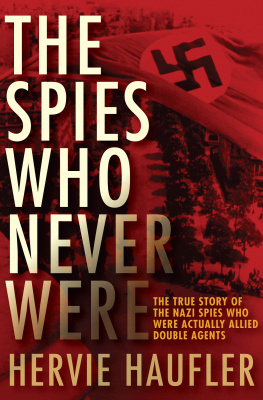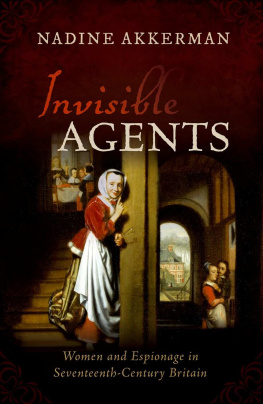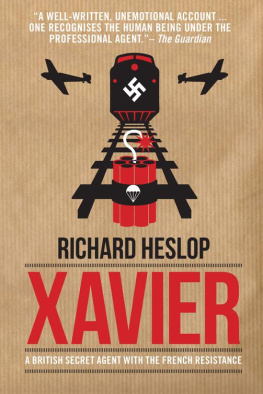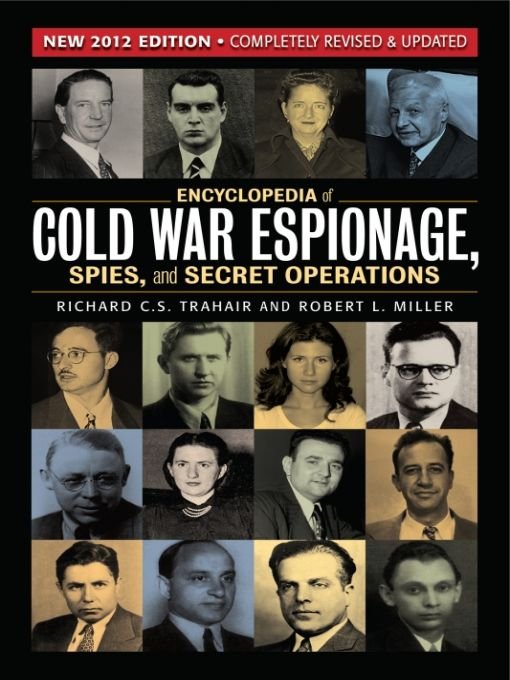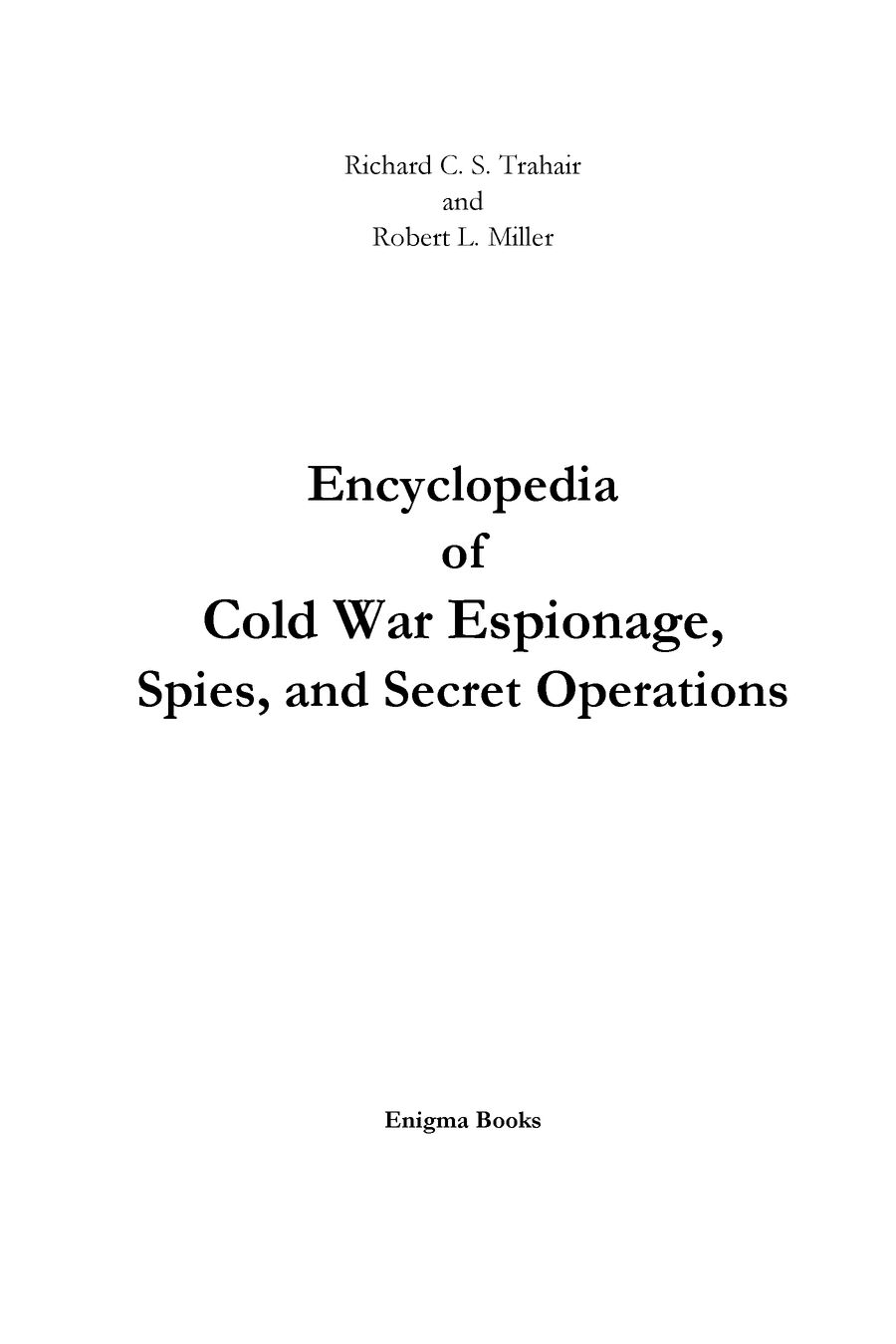Table of Contents
Also published by Enigma Books
Hitlers Table Talk: 19411944
In Stalins Secret Service
Hitler and Mussolini: The Secret Meetings
The Jews in Fascist Italy: A History
The Man Behind the Rosenbergs
Roosevelt and Hopkins: An Intimate History
Diary 19371943 (Galeazzo Ciano)
Secret Affairs: FDR, Cordell Hull, and Sumner Welles
Hitler and His Generals: Military Conferences 19421945
Stalin and the Jews: The Red Book
The Secret Front: Nazi Political Espionage
Fighting the Nazis: French Intelligence and Counterintelligence
A Death in Washington: Walter G. Krivitsky and the Stalin Terror
The Battle of the Casbah: Terrorism and Counterterrorism in Algeria 19551957
Hitlers Second Book: The Unpublished Sequel to Mein Kampf
At Napoleons Side in Russia: The Classic Eyewitness Account
The Atlantic Wall: Hitlers Defenses for D-Day
Double Lives: Stalin, Willi Mnzenberg and the Seduction of the Intellectuals
France and the Nazi Threat: The Collapse of French Diplomacy 19321939
Mussolini: The Secrets of His Death
Mortal Crimes: Soviet Penetration of the Manhattan Project
Top Nazi: Karl WolffThe Man Between Hitler and Himmler
Empire on the Adriatic: Mussolinis Conquest of Yugoslavia
The Origins of the War of 1914 (3-volume set)
Hitlers Foreign Policy: 19331939The Road to World War II
The Origins of Fascist Ideology 19181925
Max Corvo: OSS Italy 19421945
Hitlers Contract: The Secret History of the Italian Edition of Mein Kampf
Secret Intelligence and the Holocaust
Israel at High Noon
Balkan Inferno: Betrayal, War, and Intervention, 19902005
Hollywoods Celebrity Gangster
Calculated Risk
The Murder of Maxim Gorky
The Kravchenko Case: One Mans War On Stalin
The Mafia and the Allies
Hitlers Gift to France
The Nazi Party 19191945: A Complete History
Closing the Books: Jewish Insurance Claims and the Holocaust
Enigma Books wishes to express its gratitude to Francesco Cossiga, former president of Italy, for his generous time and important advice; Gary Kern for his contribution to three key entriesKravchenko, Krotkova, and Zborowskiand for information about defectors and Soviet espionage procedures; Richard Valcourt, editor of the International Journal of Intelligence and Counterintelligence, for his suggestions and help with many important details; Paul Cardin, for his vast knowledge of contemporary intelligence history; and Paolo Mastrolilli, for his insights into the specific role of the CIA in postwar Italian politics. A special thanks as well to the many friends of Enigma Books who have provided guidance and suggestions for this new paperback edition.
Introduction to the New Edition
This first paperback edition of the Encyclopedia of Cold War Espionage, Spies, and Secret Operations is completely updated to reflect selected information available since the original edition was published in hardcover. Besides the necessary additions, several important changes have been made to accommodate new data that has appeared after the opening of various archives, especially in former Soviet satellite countries such as the Baltic States, the Czech Republic, Poland, and Bulgaria, among others. Other major changes include the elimination of all references to fictional characters and operations that were part of the original edition to include the many facts that have surfaced in the intervening years. The chronology has been updated to the end of 2008 and the editors shall continue to update new data for future editions. Major revelations will no doubt continue to surface, requiring revisions and changes to the history of Cold War espionage as archives are opened and are made accessible to researchers and historians.
The evolution of international politics since the start of the 21st century and the fluctuations in relations between the traditional Cold War rivals as they adjust to the rapidly changing international landscape remain a major factor in international relations and therefore greatly affect espionage activities. In 1991, when enthusiasm and hope welcomed the termination of the Soviet system in Russia that had ruled since 1917, it was widely believed that the traditional business of spying would also be discarded because of the good will that suddenly characterized relations between the old rivals and the many gestures of genuine friendship between East and West. Those illusions were progressively dashed by many factors, and specifically regional and economic conflicts, that forced the traditional adversaries to take sides once again. Starting with the breakup of Yugoslavia, when a major geopolitical regional disagreement affected relations between the new Russia and NATO members, and through a number of disputes that remained localized, the old traditional rivalries seemd to float back to the surface.
The expression New Cold War suddenly made an unwelcome appearance and the concept became a subject of debate following the 1991 dissolution of the Warsaw Pact and the subsequent NATO decision to expand its membership to include former satellites of the Soviet Union on Russias borders. In May 2008 Mikhail Gorbachev stated in a cautionary interview that should it choose the path of confrontation with Russia, The United States could start a new Cold War. NATO also felt the renewed pressure of a more authoritarian and nationalist Russia that was asserting itself for the first time following the demise of the U.S.S.R. Aggressive attitudes by both sides are inevitably followed or preceded by renewed espionage activity, even though most new operations and the latest crop of spies remains unknown to us at this time. The main point being that true to their purpose of seeking secret information and protecting their own secrets, intelligence agencies are actively pursuing their work at every level and at all times.
The historical debate over the true beginnings of the Cold War remains open among historians. The antagonism between the Bolshevik government that took over with Lenins coup dtat in October 1917 in Petrograd and Moscow and the Western Powers, mainly Great Britain, the United States, and France, would continue for the duration of that regime until its official demise in 1991. Behind the original Soviet mistrust of the capitalist West stood the heritage of a closed Russian society that endured over the centuries. The experience of the Western Powers intervening in the Russian civil war in 19171920 provided ample justification for the creation of the Cheka. An undeclared spy war began when the Western Powers refused to recognize the Bolshevik Revolution and the overthrow of the Kerensky government. The Bolshevik regime consolidated its hold on power by taking Russia out of the First World War and abandoning the alliance with the Allies. To safeguard an elusive power and further its revolutionary program the early Bolshevik regime advocated violent revolution and was considered a threat to the West, especially to the weakened and defeated central empires in 1918, that came under the threat of violent socialist and communist revolution.
The case can therefore be made that the Cold War has its true origins in 1917 and that it simmered at varying levels of violence throughout the interwar period until the alliance between Nazi Germany and the U.S.S.R. The period from 1924, the year Josef Stalin began his ascent to absolute power, to 1941 saw a vast increase in espionage activity by the Soviet Union into the European countries and the United States. The objectives included: a constant struggle to eliminate the internal enemies of Soviet power, as Stalin perceived in the program socialism in one countryfor example, Leon Trotsky and his group, among others; the creation of a network of agents to provide intelligence in all fields (a good example is Walter Krivitskys success in securing the text of the Anti-Comintern Pact between Nazi Germany and Japan in 1936); after 1939 the focus on scientific espionage, greatly accelerated by the development of nuclear power. The Second World War and the defeat of the Axis Powers changed the balance of power as two blocs, the Democracies and the Soviets, emerged to face each other in intense competition during what is commonly referred to as the Cold War. The United States was compelled to create a peacetime political and military intelligence apparatus that it had never had before. The CIA, officially founded in 1947 in the wake of the wartime OSS, was a new and inexperienced organization. While the Cheka was created in 1917 during the Russian Revolution and could be considered as the rightful heir to the Tsarist Okhrana, American espionage entered the fray with the considerable handicap of the absence of a tradition and experience in the field of espionage. Former OSS officers and military G2 provided the initial cadre of the Central Intelligence Agency.


